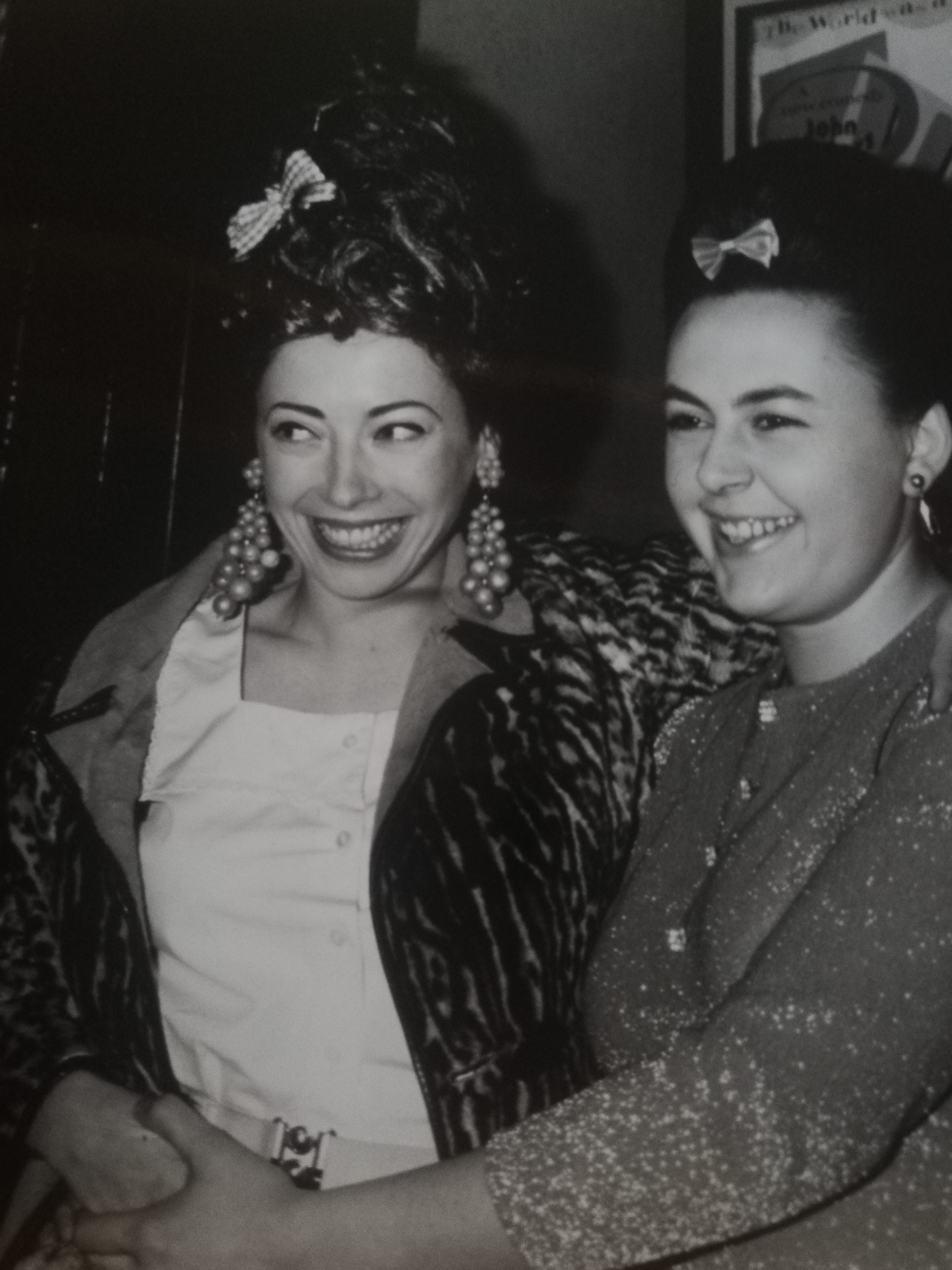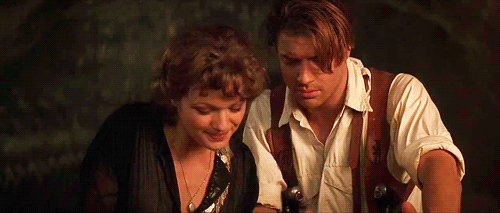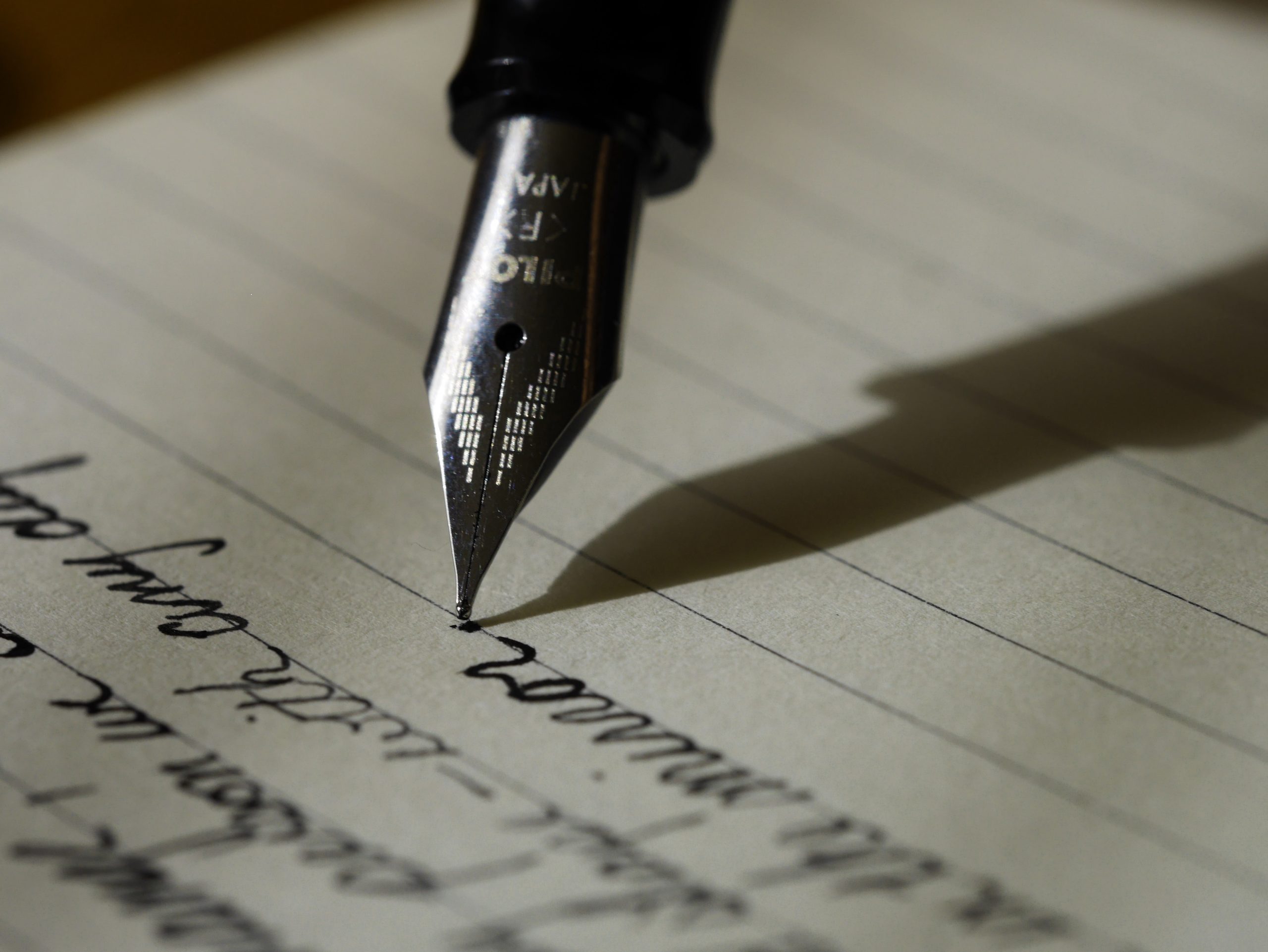Selling My Story - Roz
They do say everyone’s got a book in them, but we all know that maybe some of those stories are better kept there. I certainly learnt my lesson the hard way – having been an indie Film PR in the 80’s & 90’s, I was so sure that people (other than my friends and relatives) would find my authentic female, gossipy recollections fairly amusing and some shocking, full of big names, but also culturally insightful from a pre-social-media, pre-#MeToo aspect. Having put together all my best stories, it certainly needed some professional help (I have no delusions that I’m a good writer, just someone with an excellent memory!), so a good friend, an experienced film critic and journalist, helped me by ghost-writing and re-arranging everything in a more cohesive and linear fashion.
I was so naively confident that this finished book project, now entitled; GIRL ON FILM with the sub-title CONFESSIONS OF AN 80’S FILM PR, would be a relatively easy sell – boy, I couldn’t have been more wrong…
I carefully selected all my favourite publishers who include film biographies with their non-fiction titles. I wrote a tight one-page pitch with the target market in mind and enclosed two b/w photos of me at premieres, HAIRSPRAY & NIGHT OF THE LIVING DEAD, to give the project a flavour and to show that I was a real person, involved right at the heart of the film industry of that time. I started sending out with the first three chapters to my targeted list. I received some fantastic responses – everyone seemed to like it, but just not enough.
I’d like to think that I came pretty close at least twice to having a deal. Although I’m certainly not famous (nor would ever wish that upon anyone), my brushes with celebrity were many, so if stories about Sean Connery, Tilda Swinton, Denzel Washington, Debbie Harry, Tim Roth, Monica Bellucci, Jude Law and directors Quentin Tarantino, John Waters, Sam Raimi, Kathryn Bigelow, Ken Russell, Derek Jarman, weren’t enough to whet your appetite, what can I say? Plus an awkward afternoon with Harvey Weinstein, which certainly wasn’t for the faint-hearted. The second publisher initially appeared super-keen but made me wait for months before suddenly changing their mind.
As a Film Publicist I was well-known and respected for only selling projects that I believed in: with a film, there’s no hiding a ‘turkey’. My ability to sell something I believe in has only helped me in life, so my new current career as an agent for screenwriters means all my hand-picked clients trust me to sell their work in the best possible way. Plus my former media relationships I had with film critics and features editors has now morphed into a different side of the media in the shape of producers and development executives.
This experience has certainly been a steep learning curve and taught me how to swallow some unsavoury slices of humble pie. My patience has also been tempered as I’ve come to realise that you can never hurry anyone to make an important decision. My general policy of always responding, quickly to anyone whether it was about a certain script that they’d sent or even a job still means a lot to me. Also being able to take critical criticism ‘on the chin’, is another important life lesson and not feeling that someone is making it personal.
Roz
Header photo by Tuva Mathilde Løland on Unsplash

Roz and Lucy at the Hairspray premiere, 1988
Happy NaNoWriMo!
It's that time of year again - beloved by some, feared by others, and irritating to a few. Yes, it's NaNoWriMo, aka National Novel Writing Month.
If this is the month you decide to get that project started, good for you! Everyone's got a load of advice to give (including me; several years ago I posted daily NaNo advice over on Hodderscape; you can find (some) of the archives here.) but today I'd like to share a few important takeaway points:
- The most important rule when it comes to writing is to just do it. Don't feel that you can't start simply because you don't have a full outline or know how the book will end. This is the 'butt in chair' principle and it's really, really important. NaNo is all about teaching you the importance of discipline, of writing a bit every single day. It doesn't have to be much and it doesn't have to go anywhere. Just write!
- This is your first draft, so treat it as such: don't sweat the small stuff. Don't agonise over your word-choice, your grammar, your punctuation, your spelling. Don't get caught up in details. Leave notes to yourself (eg "what would Henry VIII eat for breakfast?") rather than get distracted while you're writing and start researching. Internet wormholes are fun, but they'll tear you away from what you should be doing: getting things down on paper. Your second draft is when you get to go back and, you know, start filling in details and sorting out the dodgy bits.
- Line up a beta-reader. It can be agonising to share something as personal as a fiction project with a friend or family member, but it's very important that you get solid, honest feedback on your work. Find someone you trust who'll tell you what you've done well but who will be honest with you when something isn't working. It's best if they are a fan of the kind of book you're writing, so that they can feed back to you as a reader of that genre as well as your loving and supportive friend.
Good luck, and we hope to see some of your NaNo projects in our submissions inboxes soon!
-Anne
Photo by Timothy Eberly on Unsplash
Why You Need an Elevator Pitch
If you're an aspiring author, you've likely come across the phrase "elevator pitch" - essentially, the idea is that if you should have the chance to spend a few moments in an elevator with someone, you should have a clear and concise way of pitching your project to them. In its purest form, the elevator pitch may sound like "A gender-swapped Succession" or "Pride & Prejudice set on Mars": it's quick, efficient, and it may strike you as a little reductive, but at its best it's exciting. You're trying to pique someone's interest, and a well-crafted elevator pitch will do just that.
But, as with all such things, working up the right elevator pitch for your project is an art. You want something compelling but not inaccurate. You wouldn't want to compare your gentle Regency romance to Game of Thrones because it doesn't make a lot of sense and gives your audience the wrong picture of your project.
So, how to go about it? Start by thinking about your influences: what inspired you while you were writing? Consider, also, comparison titles to your own. Where would your book sit in a bookstore? If someone likes your book, what other books do they like? Be specific! You may feel that your book will appeal to anyone who likes books, but remember that your average reader has preferred genres and your first aim should be to get your book into that person's hands. When thinking about influences and comparison titles to use in your elevator pitch, start with something your average reader will be familiar with. My examples above - Game of Thrones and Pride & Prejudice - are extremely well known, so will help paint a clear picture of your project. Using something more obscure can be limiting, even if it is ultimately a little more accurate: consider "The Wars of the Roses retold as a secondary world fantasy" versus "A medieval Succession, with dragons". Which of those sounds more compelling?
Next, you want to add in that element which sets your project apart from others: thus, "Succession, with dragons". What makes your project special? Again, this can feel reductive - how can you boil your entire work down to a few words? - but it's incredibly important. What is your unique selling point? Is it your characters, your setting, your approach to the material?
You can use another title as a convenient shorthand: when I was publishing Pierce Brown's debut, Red Rising, my elevator pitch was "Ender's Game meets The Hunger Games." Red Rising is about a group of students at an elite school, one where they're trained in the art of war by killing each other, and my pitch placed the novel firmly in the categories I intended: SF and YA.
A solid elevator pitch will do an immense amount of work for you: it will spark the interest of potential agents, editors, booksellers, film and tv producers and, eventually readers. If you're querying agents, I would suggest you work up as solid an elevator pitch as possible, but don't worry if it's not perfect. If you secure representation, your agent will work on your pitch before sending the book out on submission to editors, and should a publishing house take your book on, that pitch will likely be refined yet again.
Our friends at Jericho have also written some great advice about developing an elevator pitch; you can read more here.
Good luck!
- Anne
Photo by Sung Jin Cho on Unsplash
Yes, You Need An Author Website
Do you, an author, really need a website? In this well-connected world of social media? Really? I mean, really?
There's a lot of advice out there that, as an author, you need a presence on social media to be successful. The thing is, if you're not naturally inclined toward sharing on Twitter or Facebook or Instagram or Tumblr or TikTok or whatever it is, then feeling like you must have a social media presence can be exhausting or intimidating.
I'm not here to tell you that you need a presence on social media in order to be successful.
But I am here to tell you that you absolutely need a website.
It doesn't have to be much of a website. You don't need a blog, you don't need lots of pictures or updates or chatty commentary about your pet rabbit. That stuff is great, and if you want it and feel up to providing it, fabulous! But you don't need it.
Here's what you do need: a basic landing page, featuring your books, your bio... and your contact info.
If someone hears something great about your book, the first thing they'll do is Google you. Give the somewhere to go! Give them something to look at! Let them know what else you've written and where (and when) they can buy it!
So far so good, right? But what's the deal about your contact info?
People will want to get in touch with you. Sometimes it's because they love what you've done, and want to tell you so.
But there's another reason people may want to get in touch: to give you money. If you write an article, a short story, a book that can be excerpted... someone might want to rerun it in an anthology, or hire you to write something else. And if they don't have a way to contact you, then you're losing out on business.
"But," I can hear you saying, "I don't want to give people my info!" Fair enough. Fortunately, you have options! If you have an agent or a publisher, you can use their information. You can use Gmail or your email service of choice to create a public-facing email. Or you can create an email form on your website itself that people can use to write to you. (Don't forget to check your inbox regularly!)
Here are some examples of good author contact pages:
Even an author page on Facebook or LinkedIn would suffice!
Good luck!
-Anne
Photo by Volodymyr Hryshchenko on Unsplash
When we wish upon a star...
You may have noticed that we've added a new category to the website - we now have a separate page devoted to telling you a bit more about the three of us, and what we're looking for these days. But... why? There are a million agents out there, and if you find us while you're looking for an agent, and you like the sound of us, then you'll probably query us, right? (That's what we hope, anyway!)
That's definitely true. But the thing is, we love having a personally tailored submission. Say, for example, that you've written an awesome action-romance that can be compared to Romancing the Stone. But, in your submissions to agents, perhaps you haven't mentioned that fact - maybe because the film is 35 years old, and someone told you that when you query, you should make comparisons to recent successes. That's certainly advice I've given over the years.
In my wishlist, however, I specifically mention that I'm looking for action-romances like Romancing the Stone. So if you mention that in your query, it'll get me really excited. And an excited agent is a good thing... (I also love The Mummy, fyi.)
Good luck!

-Anne
Featured image photo by Pawel Czerwinski on Unsplash
What's the big deal about budgets?
So, what’s the big deal about budgets, I hear you say. Well, it could simply mean the difference between your script getting made or not, that’s all… When I remind new screenwriters of the importance of trying to keep their stories set in the PRESENT DAY or NEAR FUTURE, I can hear them sighing. However, as a new screenwriter, if you insist on staying in the Victoria era or 1960’s and set your story in Outer Mongolia, as fascinating as this place is, no UK producer will care and simply use this as a reason to turn down. The high amount of recent submissions, even from film graduates that don’t even state WHERE their story is set, let alone WHAT year, is staggering. Please set the tone!
Horror and Sci-fi genres (and some modern-day dramas) can easily come under budget if they’re careful about using a minimal cast, few SFX, no star-names and a location in the middle of nowhere. Some of my favourite films, like REAR WINDOW, ROOM or SAW were obviously set in one place producing a genuinely claustrophobic atmosphere. The astounding 2015 US film, TANGERINE’s miniscule budget was only $100,000 as it was shot on an iPhone! Feature film budgets vary wildly and because of the current ‘streaming wars’, new TV series are enjoying the bigger budgets from the film world. I was shocked to learn that some episodes of Netflix’s show, THE CROWN cost as much as £20 million per hour and not just because of the starry cast but also the supremely high standards of costume, hair/make-up, room décor, cars, etc., being 100% authentic. I was impressed by the fact that MADMEN's costume designer, Janie Bryant used genuine 1950’s/60’s/70’s vintage outfits that were then tailored for each actor.
When you contrast THE CROWN’s high budgets to a ‘normal’ hourly rate of TV being a paltry £500,000 to £1 million, you can see how challenging it is for UK TV companies to compete in this ultra-competitive world, which is why we’re seeing an increase in international co-productions. Although the impressively ‘deep pockets’ of Netflix, Amazon, Apple, etc., have created a ‘gold-rush’ in terms of UK & US production, it also means that the powers that be will rarely take a risk on an unknown writer, preferring instead to base a series on a best-selling novels (OUTLANDER, HIS DARK MAERIALS, NORMAL PEOPLE), regardless of genre as the audience is already ‘out there’ or on a popular graphic novel (UMBRELLA ACADEMY, END OF THE F***ING WORLD) and numerous prequels, sequels, spin-offs and revivals (SEX & THE CITY & FRASIER).
So, my challenge to new screenwriters is this: please set your exciting, fresh and original story in present day UK and send it to us – simple! We’re open to all genres. Every writer has to start somewhere – look at the career trajectory of your favourite writers and you’ll see that they’ve had to work hard to get that episode of future writing on top series like SUCCESSION or KILLING EVE. And then, one day in the not too distant future, you could be writing your own original TV series. It’s not impossible to achieve this but it does require focus, tenacity, a thick skin (to cope with criticism), good luck, good timing and of course, a good agent to push your work into the right producer’s hands.
Roz
Don't Panic - It's only a Pandemic!
Although our version of normality has completely been flipped upside down with everyone living under Lockdown with cinemas, theatres, art galleries, museums, football stadiums, shops and restaurants closed and all film & TV productions shut down, there are small signs of recovery.
Real life has shifted online as Zoom replaces Skype in popularity and meetings of all description take place: family & friends, cocktail parties, quizzes, book clubs, etc. Cancelled Film Festivals have banded together, creating an online group festival, We Are One: A Global Film Festival. Many top theatres from The National to The Hampstead are streaming their theatre productions.
In creative terms, some Writing Groups are also finding Zoom essential, for example, staff at the long running US comedy series, Brooklyn 99, are currently writing a new series using this method. Netflix, HBO, BBC & ITV have all recently commissioned programmes specifically about this unique time. Film & TV production will never be the same with social distance ruling for cast & crew, so inventive but safe ways to film have to be used. No-one right now knows when productions will get the green light. Broadcasters, producers, cast & crew will have to be patient as will the general public.
Talking about creativity brings me to the delicate subject of HOW WILL WRITERS COPE AT THIS TIME – while no-one really wants to see an obvious drama about this pandemic, documentaries being a more appropriate area. However, there are multiple ways to base stories on the EFFECT of this pandemic. I already know of some contemporary projects being re-written, taking the pandemic into consideration, otherwise it wouldn’t be creatively honest.
Now that no-one has the excuse of having no time to write, we recommend, the following to help any writer capitalise on this once-in-a-lifetime situation. Don’t forget US inventor, Thomas Edison’s famous quote about hard work being, “Genius is 1% inspiration and 99% perspiration” and Pablo Picasso, who said, “Inspiration exists, but it has to find you working.”
1/ Focus on your best idea and start writing, a lot, every day.
2/ Research, now you have so much time to investigate every aspect of your characters/story.
3/ Stick to a daily routine and force yourself to write a minimum of words per day.
4/ Get dressed every day, eat decent regular meals and try to sleep well too.
5/ Exercise daily – yoga being good for concentration or ideally get a dog.
6/ Stop avoiding the difficult problem areas in your script or book and try to solve them first.
7/ Don’t spend many years on one project – instead, start something new – even in a completely different genre or style, this too could lead to fresh inspiration?
8/ Don’t worry about staring out of the window or into space as this is part of the creative process.
9/ Keep other interests or hobbies, good for distraction.
10/ Build a thick skin – take constructive criticism well. Who doesn’t like a compliment? But don’t be naïve to expect a life without rejection or negative criticism.
Here are more quotes from unique talents; “If I waited for perfection, I would never write a word” Margaret Attwood and “Writing for me is a very lonely part of the process…I usually veer between crushing self-doubt and an over-whelming sense of triumph”, Taika Waititi and “I am lonely sometimes, but I dare say it’s good for me….” Louisa May Alcott.
Roz
How Ki Agency is Responding to Lockdown
As the lockdown gets extended, it seems a good time to say how we’re responding as an agency.
Roz and I are both working remotely, as normally as possible. I’m missing the gym, but am getting out for walks and also finding online workouts. Roz is also doing a lot of walking. Public transport and the daily commute is harder to pine for.
Not having to travel to meetings has given us more time to talk to more people, so we’re catching up more often with publishers and producers. There’s a feeling that we all want to keep the wheels turning. Contracts are being processed, we’re sending publishers and producers stuff to read, money is changing hands, and we’re as focused as always on how to move our clients forward.
It’s also a great time for developing ideas and new projects, and taking a fresh look at how we work and how we can be more effective.
So we’ve been thinking about the agency, and also how best to advise our clients, and the writer community in general. Roz and I have been discussing that today, and the next blogs will address this, so watch this space!
Meg
Concentrate your creativity
Editorial input
Since seeing The Wife last year, I’ve been mulling over the blurry edges of authorship. The Glenn Close character rewrites her husband’s first novel, which is published in his name, and ends up watching him collect a Nobel Prize for ‘his’ impressive contribution to literature.
This extreme situation made me start thinking about the (much smaller) editorial contributions which I and my colleagues make. We don’t discuss it much. Most of us feel that any editorial input to a book or screenplay is the rightful property of the writer.
Agents, publishers, script editors, and producers often discuss work in progress with the writer, and contribute ideas and comments to a greater or lesser extent. Sometimes we offer thoughts that are adopted by the writer, and the resulting work is changed significantly.
I was interested to read this legal report this morning: https://www.harbottle.com/martin-v-kogan/
There are some conclusions to draw from this. First, if a writer accepts a large contribution from a friend, family member, etc, they should discuss this with them and make it right with them, to avoid a future claim.
Second, it’s a good idea to get comments from a small number of people, rather than just one or two. I believe that professionals will continue to be happy to nurture work in progress without claiming ownership of any contributions. Certainly there is no copyright in ideas, and if an agent, publisher or producer did decide to challenge a writer for their earnings, there would normally be only a flimsy basis. We can continue the glorious, fascinating process of discussing developing new projects, but it’s worth bearing this issue in mind.
-Meg
Photo by Glenn Carstens-Peters on Unsplash








